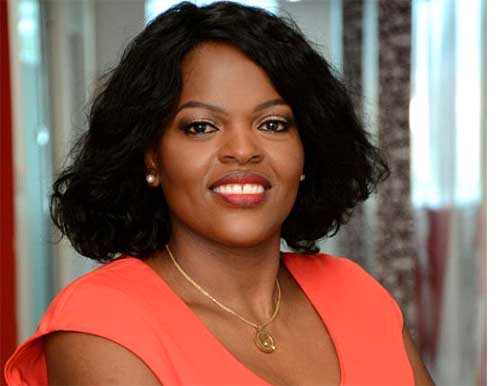Yolanda Zoleka Cuba, Vodafone Ghana CEO
Vodafone Ghana has released findings of a socio -economic impact study it commissioned a private firm to conduct for it.
The study, which is believed to be the first to have been done on a large scale by a mobile telecommunications operator, investigated the impact of the company’s activities on the economic development of the country from 2014 to 2017.
Concluded last year, the study, conducted by QBR Research Consultants & Practitioners – a marketing, public relations and social research with Dr. Kweku Rockson as Principal Consultant, made interesting findings.
At the official release of the report in Accra on Tuesday, Dr. Rockson said their findings showed that Vodafone paid taxes of about GH¢700 million within the period under review and VAT collected reached some GH¢302 million which represented 1.43% for 2014, 1.85% for 2015 and 1.76% for 2016 during the period.
He said Vodafone paid GH¢186 million as Communication Service Tax over the period, representing 15.85% for 2014, 22.65% for 2015 and 23.02% for 2016 while Vodafone’s SSNIT contribution hit GH¢24.4 million for the three year period.
On capital expenditure, Dr. Rockson said their findings showed that Vodafone hit GH¢487.6 over the period, which translates into some 2.11% in 2014, 2.67% in 2015 and 2.99% in 2016, representing a percentage of total national capital expenditure.
He said the study showed that Vodafone Ghana created a lot of direct and indirect job opportunities in the country and was also a major source of employment and skills transfer.
“In the periods reviewed, our findings showed that Vodafone provided incomes, benefits and a high-technology career path for over 1,117 people in direct employment,” Dr. Rockson said, adding “Vodafone has contractual relationships with many distributors, suppliers and partner companies in the country, each of which relies to a greater or lesser extent on revenues to pay their employees’ wages.”
Apart from direct employment, the company also created indirect employment in the area of distribution, wholesale and retailing.
About 520,000 Mobile Money Agents were estimated to have been engaged.
“There was a huge multiplier effect due to the presence of street vendors and those who have small kiosks or tables which are protected by umbrellas,” he said.
He said that in measuring the financial impact of Vodafone on Culture and Creative Arts (Entertainment), Education, Health and Corporate Social Responsibility, they compared the Vodafone’s spending to that of the various ministries.
Dr. Rockson said “there was GH¢10 million as expenditure on creative aArts as a percentage of Ministry of Tourism, Arts and Culture’s (MTAC) Annual Allocation. There was also a GH¢10.7 million as expenditure on health as a percentage of Ministry of Health’s annual allocation and again GH¢1.6 million as expenditure on education as a percentage of Ministry of Education’s annual allocation all within the period under review.”
He also said that the data reviewed indicated that Vodafone’s activities had a positive impact on agriculture where communication technology through mobile phones provided information about the weather, markets prices and good farming practices.
“The Farmers’ Club is a special SIM which has been designed to assist farmers. Over 65,000 customers invested over GH¢4 million since launch and donates 600 phones to female farmers,” he said.
Yolanda Cuba, CEO of Vodafone Ghana, in an introductory remark said, “Vodafone Foundation and Vodafone Health have brought positive live changing experience to many people.”
She said Vodafone Health had supervised about 96 Healthline surgeries, adding that over 1,000 patients were discharged under the homecoming segment, over 10,000 beneficiaries in deprived communities across the country have been beneficiaries.
“Currently, more than 500,000 persons have subscribed to Instant Schools through broadband on issues ranging from IT management, sales and customer service and then health and other social issues. Vodafone offers mobile education solutions which combines the power of Vodafone technology with the knowhow and support of local entities and the Vodafone Ghana Foundation Scholarship Scheme, which aims at improving female engagement in Science and Technology, is on course because over 300 female scholars have benefitted.”
She said, “Vodafone has expanded its service portfolio and overhauled its prices to meet customer demand while injecting capital to improve the network capabilities and customer experience. Going into the future, Vodafone has positioned itself as a potentially profitable and sustainable business.”
By William Yaw Owusu


